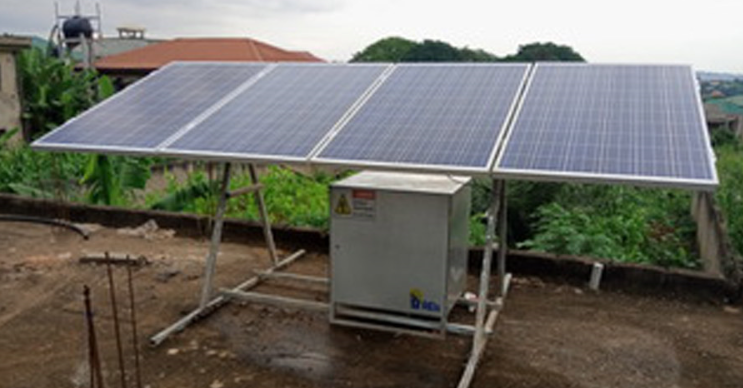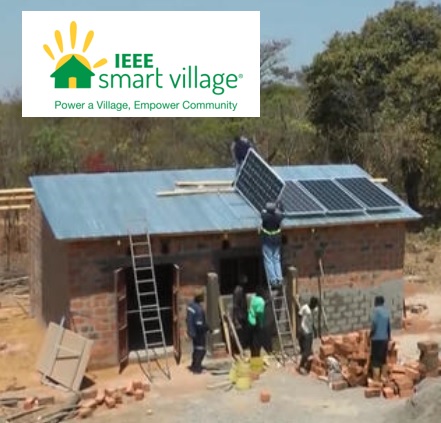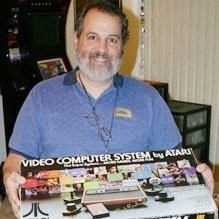Global Humanitarian Technology - What is it?
Find out what global humantarian technology is and how you can play a vital role in saving and improving thousands of lives, making healthier humans and providing services and help for people that do not have lighting when they go to bed or clean water to drink when they are thirsty.

Global Humanitarian Technology promotes the application of science, engineering, and technology in developing solutions for disadvantaged communities. Global humanitarian technologies are our way to show socially responsible humanitarian work and projects, that impact in positive and meaningful ways the lives of disadvantaged people around the world. Through engineering, computing, and technology innovation around the globe we make a difference. Today Professor Joe Decuir will highlight the major global humanitarian technologies which include affordable clean energy, agriculture food security, clean water sanitation, community engagement, connectivity communication, disaster mitigation, quality education, enhanced healthcare, and poverty alleviation.
Date and Time
Location
Hosts
Registration
-
 Add Event to Calendar
Add Event to Calendar
- Contact Event Host
-
Mike Brisbois
(708)668-5488
IEEE Consultant Network Seattle
mike.brisbois@ieee.org - Co-sponsored by IEEE Power & Energy
- Survey: Fill out the survey
Speakers
 Robin Podmore of IEEE Smart Village
Robin Podmore of IEEE Smart Village
Photovoltaic Systems
Solar Panel Installation - Off the gird solution. Basic construction of a PV (Photo Voltaic) system. What is needed? How does it work? How long will the power last for? What is the load? What is the voltage? Robin will describe the creation and deployment to African cities. Systematic Solutions for Empowering a Community. IEEE Smart Village (ISV) has a unique approach to support the world’s energy-impoverished communities by providing a comprehensive solution combining renewable energy, community-based education, and entrepreneurial opportunities. ISV provides seed-funding to carefully selected community entrepreneurs based upon a credible business plan that will impact significant number of people with electricity, education and jobs.
Biography:
Robin Podmore managed the Power Systems Research group at Systems Control (now ABB) in Palo Alto, CA, and was a director and founder of ESCA Corporation now Alstom Grid. Since 1990 he has been founder and president of IncSys. He has more than 40 years of managerial and technical experience in the development and implementation of power industry computer applications. For more than twenty years he has been working on making Operator Training Simulators affordable, available and usable for all power system operators. The IncSys PowerSimulator product is now used to train more than 50% of North American Reliability Corporation certified power system operators. During 2008 through 2011, with sponsorship of the US Department of State he worked with and trained the trainers for the Ministry of Electricity Real-time engineers in Baghdad, Iraq and witnessed a dramatic decrease in the frequency of system wide blackouts. For the last three years he has been working as Co-Chair of the IEEE Community Solutions Initiative to provide affordable energy for the world’s poorest. In January 2012 he was appointed as Vice President of New Initiatives and Outreach for the IEEE Power and Energy Society. In 2009, with support from a DOE Smart Grid Workforce Training Award Dr. Podmore founded the Power4Vets program for recruiting, training, certifying and placing military veterans as power system operators. He is a Fellow of the IEEE Power Engineering Society and a registered Professional Engineer in the State of California. He received his Bachelors and Ph.D. degrees in Electrical Engineering from University of Canterbury, New Zealand. Please welcome Robin Podmore.
Email:
Address:Issaquah , Washington, United States, 98029
 Professor Joe Decuir of University of Washington/IEEE
Professor Joe Decuir of University of Washington/IEEE
Global Humanitarian Technology
Power, communications, health, water, agriculture, disaster response.
- IEEE 2030.10 standards, including 2030.10.1: 48v DC generation and appliances in India.
- Engineers Without Boarders
- MOVE Truck, and attempts to replicate it around IEEE-USA/Region 6
Biography:
Joe Decuir is a professor at the University of Washington Bothell Campus. He has previously chaired the GHTC. He holds a BS and MS from the University of California Berkley. Joe stands for the following: Sustainable Development Goals: No Poverty, Zero Hunger, Good Health and Well-being, Quality Education, Gender Equality, Clean water and Sanitation, Affordable and Clean Energy, Decent work and economic growth, Industry, Innovation, and Infrastructure, Reduced Inequalities, Sustainable Cities and Communities, Responsible consumption and production, Climate action, Life below water, Life on land, Peace Justice and strong institutions, and Partnerships for the goal.
Email:
Address:Issaquah, Washington, United States, 98029
Agenda
High Noon - IEEE Announcements
12:02 pm - Induction of 1st Speaker Dr. Robin Podmore IEEE Smart Village - PV installation/deployment
12:04 pm - Presentation - Example of 3rd World Technology
12:24 pm - Q&A
12:30 pm Introduction of Professor Joseph Decuir
12:32 pm - Presentation - What is global Humanitarian Technology?
12:52 pm - Q&A
Humanitarian Technology - Electricity, Clean Drinking Water, Vaccines, lighting, disaster response teams. You can help. You can give back. Sign up today for our lunch session. Find out more about technologies that can improve and save thousands of lives.

